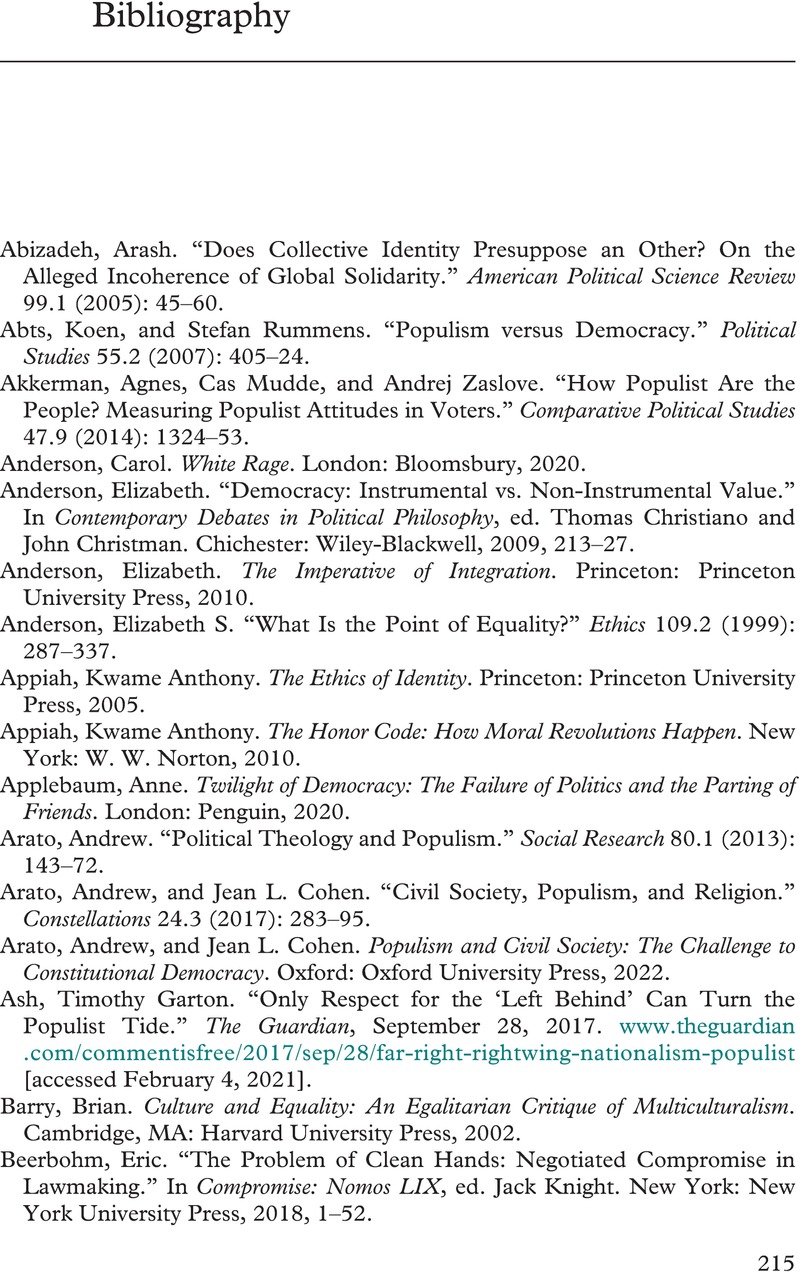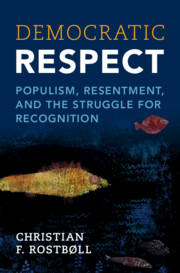Book contents
- Democratic Respect
- Democratic Respect
- Copyright page
- Dedication
- Contents
- Acknowledgments
- Introduction
- 1 Recognition and the Politics of Resentment
- 2 Respect, Esteem, and Solidarity
- 3 Rights and the Populist Claim for Recognition
- 4 Procedures, Outcomes, or Identification?
- 5 Respecting Disagreement
- 6 Publicity and Correcting Democracy
- Bibliography
- Index
- References
Bibliography
Published online by Cambridge University Press: 16 March 2023
- Democratic Respect
- Democratic Respect
- Copyright page
- Dedication
- Contents
- Acknowledgments
- Introduction
- 1 Recognition and the Politics of Resentment
- 2 Respect, Esteem, and Solidarity
- 3 Rights and the Populist Claim for Recognition
- 4 Procedures, Outcomes, or Identification?
- 5 Respecting Disagreement
- 6 Publicity and Correcting Democracy
- Bibliography
- Index
- References
Summary

- Type
- Chapter
- Information
- Democratic RespectPopulism, Resentment, and the Struggle for Recognition, pp. 215 - 230Publisher: Cambridge University PressPrint publication year: 2023



